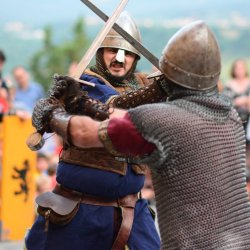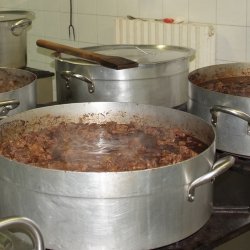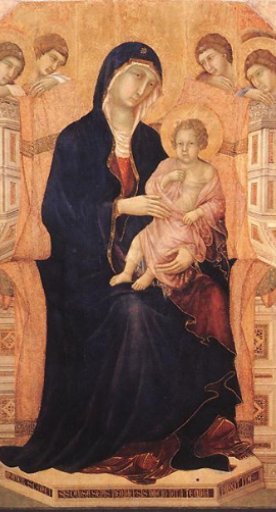Things to do and see in Fiesole
An Etrusco-Roman hilltop city with treasures of all kinds
The Roman "Faesulae" boasts Etruscan origins and was the region's epicenter for quite some time. Fortified in 1325, it was also a Medici family favorite. In the 18th and 19th centuries, Fiesole witnessed the construction of many villas and gardens, becoming a top destination among foreigners. And besides its rich history and culture, it's easy to reach! Hop in a taxi or take the bus (line 7) to get there.
If you’re in Florence, don't forget to add Fiesole to your list of day trips. Located on a hilltop overlooking the Arno and Mugnone valleys, this charming town offers an unrivaled view of Florence and its surroundings. Fiesole’s beautiful countryside, archaeological remains and wealth of artistic masterpieces will blow you away.
Here are a few treasures not to miss:
-
1.Duomo
-
2.Archaeological site
-
3.Church of San Francesco
-
4.Bandini Museum
-
5.Nearby
Duomo

Fiesole’s main cathedral is a Romanesque structure that was enlarged in the 13th and 14th centuries, though the façade and bell tower (dating to 1213) were both remodeled in the 19th century. Inside, works by Giovanni della Robbia, Bicci di Lorenzo and Mino da Fiesole adorn the church, not to mention the Salutati Chapel vaunting frescoes by Cosimo Rosseli.
Archaeological site

In an enchanting setting and mysterious atmosphere, you’ll find a Roman theater of the Imperial era vaunting seats for over 3000 spectators. The area also includes thermae (bath complexes), a Roman temple and a stretch of Etruscan walls.
Church of San Francesco

Perched on the hilltop where the ancient acropolis once stood, you’ll find the 13th-century Church of San Francesco, which underwent a number of renovations throughout time. Don't miss visiting the 15th-century cloister next to the church! And on a beautiful and warm day, enjoy a picnic in the small park near the church: the area affords jaw-dropping views of Florence, a Tuscan treasure not to be missed.
Bandini Museum

The Bandini Museum is a small treasure chest of art, collecting thirteenth- to fifteenth-century Florentine paintings and polychrome-glazed terracottas by Della Robbia.
Located next to the Duomo of Fiesole, the structure that houses the museum was built by architect Giuseppe Castellucci in the early 1900s.
Nearby

In the immediate vicinity of the center of Fiesole are the church and convent of San Domenico, where Beato Angelico lived and created many of the works that are now in some of the world’s leading museums.
The Badia Fiesolana - the ancient Cathedral of Fiesole - deserves a visit for the rare architectural setting of its Romanesque façade, covered with white and green marble, for the many works of art and the panoramic setting; it can be reached from the Convent of San Domenico, turning left if coming from Florence.
A little more than one kilometer from Piazza Mino there is Villa Peyron. The entire complex includes a museum, a monumental garden, woods and olive groves; the location is beautiful and with a spectacular view of Florence.














































